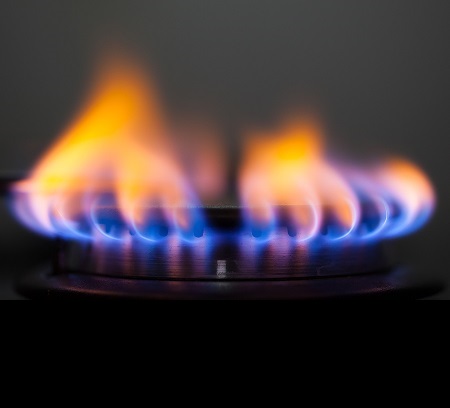The report Gas Market Transformations Economic Consequences for the Manufacturing Sector projects significant negative impacts on Australia's manufacturing sector and adverse effects extending to the mining, transport and agriculture sectors, which are, according to the report, significantly larger than the output impacts of the carbon tax.
The impacts are the result of sharply higher gas prices as LNG exports ramp up on the East Coast, tripling domestic gas prices to export parity levels.
The report anticipates that under current policies and realistic gas price forecasts:
- Australia's manufacturing output will contract by $118 billion over the next seven years;
- 14,600 manufacturing jobs will be lost;
- The mining sector will contract by $34 billion and the agriculture sector by $4.5 billion;
- Queensland, New South Wales and Victoria will suffer serious declines in manufacturing.
The projected impacts on sectoral output in 2020-21 are significantly larger than those associated with repeal of the carbon tax, based on a comparison with the Government's Regulation Impact Statement for repeal.
The report also finds these impacts would be significantly lower if the upstream domestic gas market was more competitive.
For the first time, the report presents six case studies on the impact on companies in sectors as diverse as aluminium, chemicals, food and beverage, paper and galvanising to give real illustrations of how higher gas prices impact on manufacturing operations and jobs.
AiGroup: 'serious side effects' for local manufacturing
Australian Industry Group Chief Executive Innes Willox said it was a paradox that bringing Australia's abundant gas supplies to market could have such a damaging effect on the manufacturing sector.
"Gas exports should be pure good news for Australia. However, the strong benefits for investment and export earnings come with serious side effects for domestic manufacturing: tight supply and surging prices. Without reform, our rich energy reserves will no longer contribute to Australia's competitiveness," Willox said.
"We need both a growing LNG export industry and a diverse industry base with a strong manufacturing sector. We need action on two fronts – get more gas flowing, by replacing blanket bans on gas production with strong but workable regulation; and reform the market that gas is sold in to boost competition and transparency."
Gas shortage from "excessive regulatory barriers"
Phil Barresi, CEO of the Energy Users Association of Australia echoed the call for urgent action from all governments, suppliers and infrastructure operators.
"Australian companies seeking to renew or establish gas supply contracts for domestic operations are already facing an escalation in prices, uncertainty of supply and an inability to lock in long-term supply contracts," Barresi said.
"If the domestic gas market were functioning efficiently these price signals would already be stimulating increased supply but instead we are seeing a shortage of gas from excessive regulatory barriers, retention of reserves to await higher export prices and the exercise of market power at the expense of gas users."
Greater transparency for upstream industry
The Australian Aluminium Council, the Australian Steel Institute, the Australian Food and Grocery Council and the Plastics and Chemicals Industries Association said the impact of higher gas prices was already being felt across the manufacturing sectors they represent.
Executive Director of the Aluminium Council, Miles Prosser, said action on multiple fronts was needed to avert dire consequences for Australian manufacturing.
"Alumina refining is a gas intensive process and the forecast price rise is already seeing investments put on hold," Prosser said.
"We welcome the commitment from the pipelines industry to publish pipeline capacity information. Now we also need greater transparency and basic information about the upstream gas supplies, which is currently obscure contract availability, pricing and penalty clauses.
"An ACCC investigation into the depth, liquidity and competitiveness of the domestic gas market, particularly the upstream industry, would help to shine a light on current inadequacies."
AFGC: direct impact on regional economies
Australian Food and Grocery Council CEO Gary Dawson said in a trade-exposed sector like food and grocery, Australian producers had limited or no capacity to pass through higher utility costs.
"Food and grocery processing is the lifeblood of many regional economies and higher gas costs have a direct impact on the profitability and competitiveness of food companies. If a food processing plant shuts down there is a direct flow-on effect to farmers supplying that plant when they lose their key customer," Dawson said.
PCIA: Broad response needed to avert consequences
Plastics and Chemicals Industries Association CEO Samantha Read said gas was not only an important fuel source for the sector but also an essential feedstock for chemicals and plastics manufacturing. The industry transforms gas through chemistry to create products that are critical inputs to supply chains across Australia.
"A key contribution of this report is that it reveals how important natural gas is to the Australian economy. A supply and price shock to the extent forecast from the LNG export boom requires a broad national response. It's not too late to avert some of the damaging consequences," Read said.
More 'market muscle' needed
Steel Institute CEO Don McDonald said that compared to the huge volumes of gas slated for LNG export, domestic manufacturing consumed relatively small quantities of gas, meaning domestic users lacked the market muscle to drive long-term supply contracts.
"Market power is a long recognised problem and one that must be addressed if the domestic market is to operate efficiently, respond to the transformation that will flow from the export boom and ensure gas continues to flow to relatively small domestic users," McDonald said.
The six industry associations have called on governments, gas suppliers, pipeline operators, users and the community to take a constructive approach to addressing the short and longer term impacts of the gas market transformation. The federal government's Energy Policy White Paper is an important venue for doing this.
The detailed quantitative analysis was undertaken by Deloitte Access Economics on behalf of six major industry associations representing the bulk of Australia's manufacturing sector, which employs 950,000 workers.









